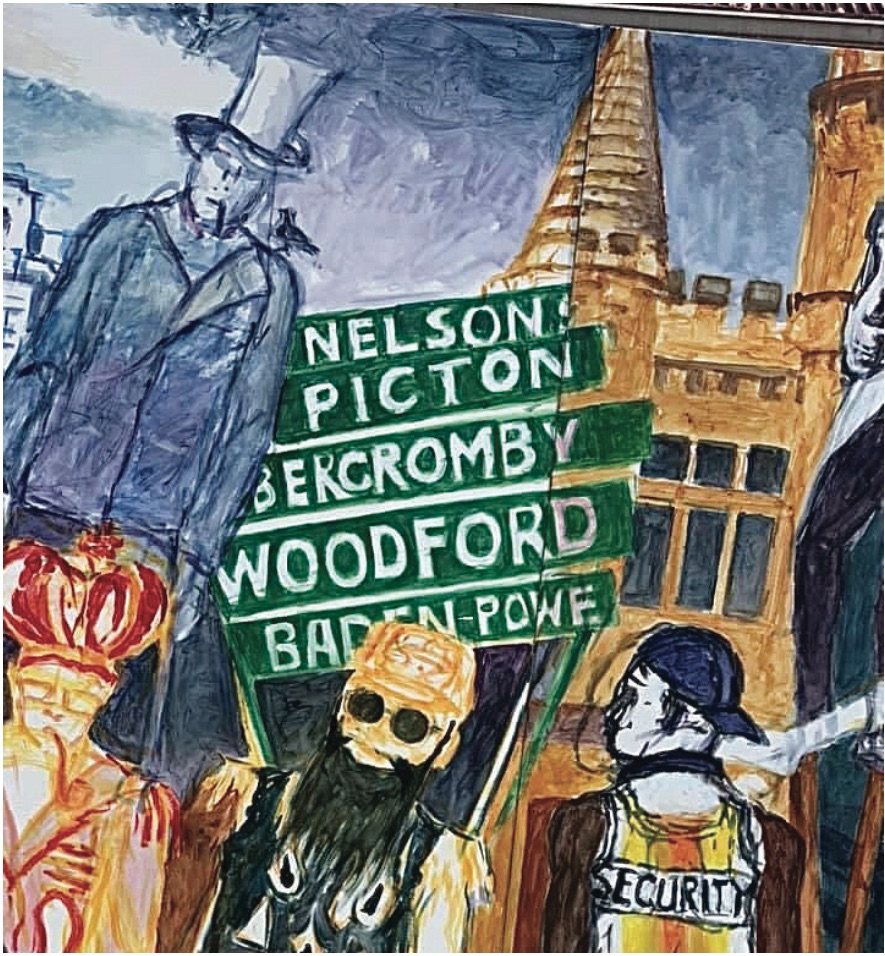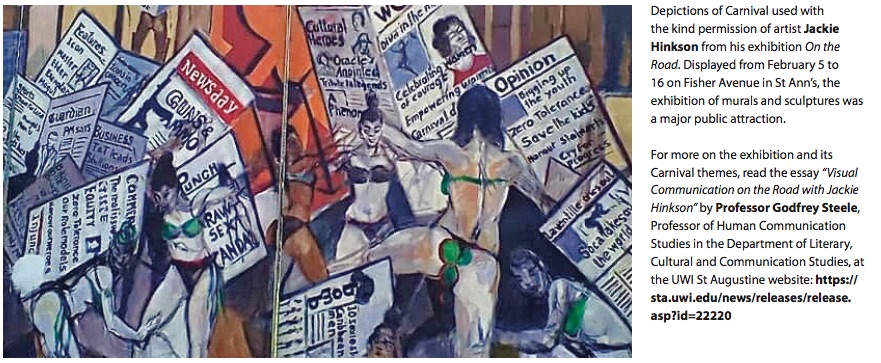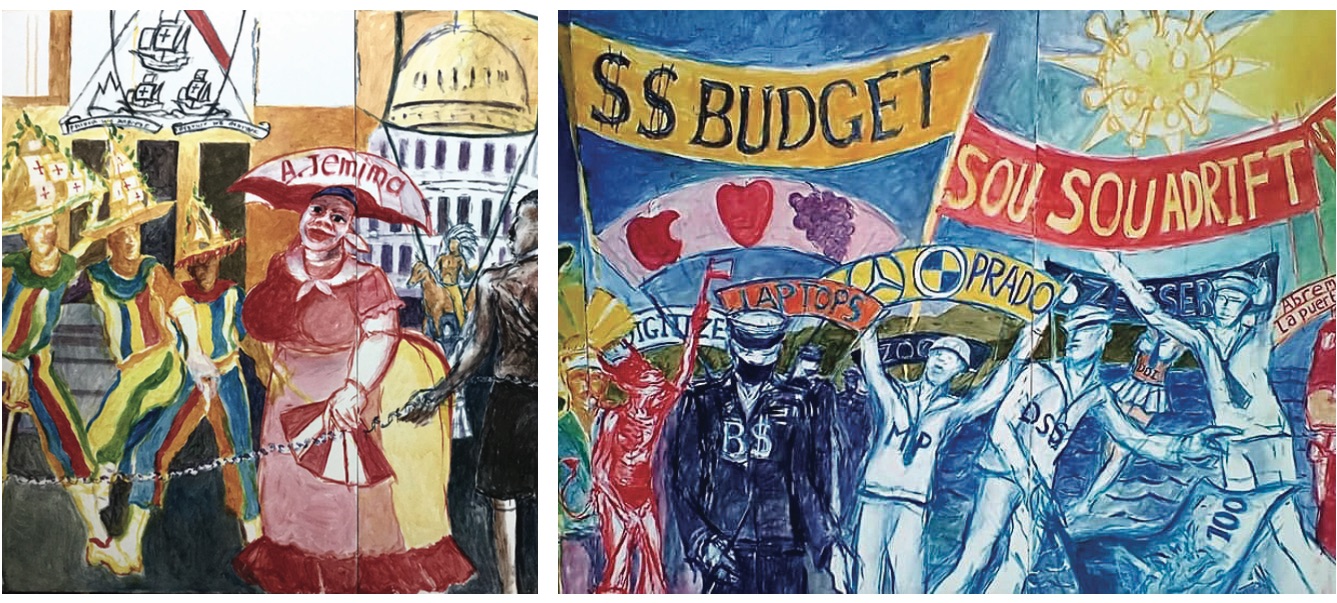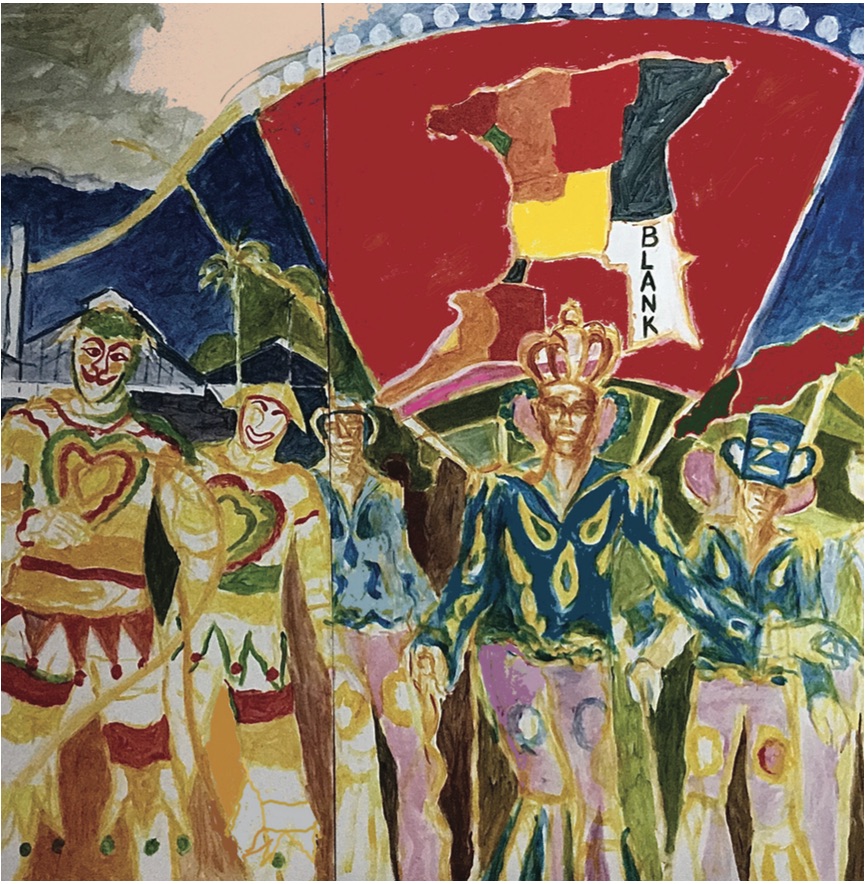Panchayat symposium ponders the national festival during its lost season
“The feelings of freedom and passion that you experience during j’ouvert are the same that you experience in literature, whether you’re reading or writing. Literature takes you to that same point of letting go as j’ouvert,” said Dr Muli Amaye, Creative Writing Programme Coordinator at the Faculty of Humanities and Education.
“They just work together – the rhythm, just being one with an art form – it's freeing.”
With Carnival 2021 cancelled globally as well as in Trinidad and Tobago due to the COVID-19 pandemic, Amaye, one of the organisers of Panchayat: The Mas(s) in We: (Re)claiming de People’s Festival, believes this is a critical time to look at Carnival with fresh eyes. Of particular importance to Amaye as not only a scholar, but a writer, is the relationship between Carnival and literature. For her, the parallels between the festival (particularly j’ouvert, which she sees as the core of Carnival) are pronounced.

Panchayat was a three-day, virtual research and arts symposium held from February 24-26 and streamed on The UWI YouTube channel. The symposium sought to delve into the myriad ways ordinary people can regain their stake in how Carnival is formulated and celebrated throughout the country. The guiding themes for the three days were mas, music and resistance. Organisers engaged musicians, mas makers, writers, performers, Carnival entrepreneurs and scholars.
The subject matter was wide-ranging, spanning the gamut from the influence of the Black Power Movement on calypso and soca, to Caribbean sexuality, to issues of race and class separatism as they relate to Carnival and even the business and manufacturing of pan. Featured panellists included radio personality Gerelle Forbes, Pan Trinbago Education Officer Marcus Ash, National Steel Symphony Orchestra director Akua Leith, historian Aiyegoro Ome, Trinbago Unified Calypsonians Organisation president Lutalo “Brother Resistance” Masimba, Soca artiste Erphaan Alves, writer/activist Corey Gilkes, filmmaker/choreographer Sonia Dumas, Department of Literary, Cultural and Communication Studies lecturer Dr Suzanne Burke, Department of Creative and Festival Arts (DCFA) lecturer Omari Ashby, and Dr Sue Ann Barratt of the Institute of Gender and Development Studies. There were also participants from Goethe University in Germany, UWI Mona, Université des Antilles, and The University of Trinidad and Tobago.

In addition to the panels and roundtables, there was a virtual exhibition hosted on The UWI website and lunchtime film interludes which included one-minute video submissions from the public answering the question: What does Carnival mean to you?
"So much of what was spoken about is captured in the title itself, which is defined in two ways: mas as in the shortened version of the masquerade, and the creeping loss of the masquerade for the masses," said Jessel Murray, DCFA senior lecturer and symposium organising Chair.
"There’s a sort of built-in consumerism which has been taking over the Carnival at the expense of what we might term the heart of traditional mas. With the contemporary mas, there appears to be some heightened consumerism and, with that, its own economics, but we’re finding that the traditional persons who create the mas and participate in it are being left out of this consumerism. This panchayat was a discussion of the strengths and weaknesses of each wing of Carnival. So it’s a marriage of those two wings with all its contentious nature and what we aimed to get out of it is a way moving forward," added Murray.
Murray, who is also the former director of the National Steel Symphony Orchestra, coordinated the panel “Soca Tributaries: Discussing the confluence that continues to shape soca”; and recruited most of the participants of the roundtables including – “The Young Kings to Where?” and “The Business of Pan and Pan Manufacture”.

According to Murray, it was important to have a variety of speakers to bridge the gap between the public and academia. "The role of academia is that we can persuasively combine the voices of other academics to the voices of people who may not be academic, but are strongly within the mas, and partner in advancing the cause. We had academic panels in the Panchayat, but we also had significant people who would not have gone through the academic route, but have lived experience, and we want to combine these ideas," he added.
Amaye chaired the roundtable “Mas Literature - Carnival as Chrysalis”, which featured mainly women, student writers in the MFA programme and local author Breanne McIvor. Participants included June Aming, Faith Jaffareli, Nadja Nabbe, and Randy Ablack. They shared excerpts from original short stories set during Carnival. The focus on women's voices was important because Amaye believes there to be a distinct difference to depictions of Carnival historically written by some male writers, which tended to depend on metaphors of Carnival developed through the female body.

"These stories are very much about how the writers approach Carnival in their work and use it as a landscape for the unfolding narrative," she said. The full-length stories will also be made available on The UWI St Augustine website for public consumption.
Overall, Amaye saw the cancellation of Carnival 2021 and the positioning of the Panchayat symposium as a time for re-imagination and reflection: "This was a good opportunity to look at Carnival's past, its present and to imagine a future and think about what could be ushered in. We have to ask some serious questions. Has it just become a money-making machine? Is it constantly changing just like languages and people?"